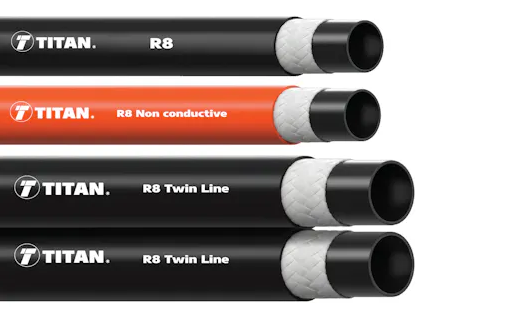Thermoplastic Hoses: The Car Wash Advantage
The industrial hose market is undergoing a major transformation. For years, rubber hoses were the go-to choice for many applications, but they are now being gradually replaced by thermoplastic alternatives. This shift is driven not only by technological progress but also by the superior performance and versatility that thermoplastic hoses offer—especially in demanding environments like car wash systems. One of the standout features of thermoplastic hoses is their strong bond between the inner tube, reinforcement layers, and outer jacket. This structural integrity is made possible by the inherent properties of thermoplastic materials. In car wash settings, where hoses are constantly moving and exposed to water, chemicals, and temperature changes, this construction ensures long-lasting performance and reliability. Beyond the advantages already mentioned, it's important to compare thermoplastic hoses directly with spiral braided ones in the context of car wash applications: The transition from traditional rubber and spiral braided hoses to thermoplastic ones in car wash systems is more than just a trend—it’s a smart, forward-thinking decision. With enhanced flexibility, durability, and chemical resistance, thermoplastic hoses not only improve the efficiency of car wash operations but also create a safer, more sustainable, and cost-effective environment. Whether you're looking to upgrade your current setup or start fresh, thermoplastic hoses offer a reliable solution that meets the demands of today’s car wash industry. For more information on how these advanced hoses can benefit your business, reach out to us or visit our website. At Titan Fittings, we specialize in providing high-quality, durable, and efficient thermoplastic hoses designed specifically for the toughest car wash environments. Shop Thermoplastic Hoses Today and Experience the Difference. Tungsten Alloy For Oil Logging Tungsten alloy is an ideal material for oil logging due to its high density, excellent corrosion resistance, and good mechanical properties. Oil logging is a process of measuring the porosity, permeability, and fluid content of rocks in the subsurface to evaluate the potential for oil and gas production. Tungsten Alloy For Oil Logging,Rod For Oil Logging,Customization Tungsten Alloy Rods,Kinetic Energy Penetrator Tungsten Copper Zhuzhou Jiuding Metal Technology Co., Ltd. , https://www.zztungstenheavyalloy.comThermoplastic Hoses Revolutionizing the Car Wash Industry
The Advanced Design of Thermoplastic Hoses
Why Thermoplastic Hoses Outperform Rubber in Car Wash Systems
Boosting Safety and Efficiency in Car Wash Systems
Thermoplastic Hoses vs. Spiral Braided Hoses: A Clear Winner

Conclusion
Tungsten alloy is used in oil logging tools such as gamma ray detectors, density logging tools, and neutron porosity tools. These tools are used to measure the characteristics of the subsurface rock formations and determine the presence of oil and gas reserves.
The high density of tungsten alloy enables the tools to penetrate deep into the earth's crust and accurately measure the properties of the rock formations. Additionally, tungsten alloy is highly resistant to corrosion, which is critical in harsh environments such as oil fields.
Furthermore, tungsten alloy has excellent mechanical properties, including high strength and toughness, which make it suitable for use in downhole tools that are subjected to high pressure and temperature.
In summary, tungsten alloy is an ideal material for oil logging due to its high density, excellent corrosion resistance, and good mechanical properties. Its use in oil logging tools enables accurate measurement of subsurface rock formations and identification of potential oil and gas reserves.